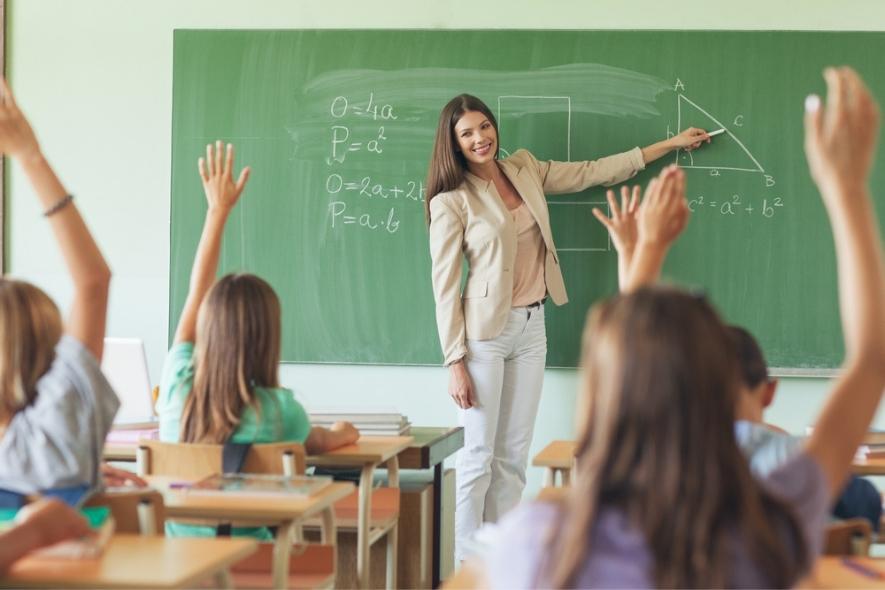Discovering the Various Training Strategies in Key Scientific Research Education And Learning Today
The landscape of main scientific research education is developing, with different teaching approaches acquiring prestige in modern class. Inquiry-based understanding, hands-on experiments, and the assimilation of modern technology are redefining just how teachers engage young minds. Additionally, collaborative approaches and set apart direction are being employed to satisfy the varied needs of pupils, improving both engagement and understanding. As we check out these methods, questions emerge regarding their effectiveness and the effects for future academic techniques. What might these shifts in approach mean for the following generation of students?
Inquiry-Based Discovering
Inquiry-Based Learning (IBL) is an instructional strategy that encourages pupils to explore clinical concepts with wondering about, investigation, and hands-on testing. This approach emphasizes the function of pupils as active individuals in their knowing, advertising essential thinking and problem-solving skills. By involving with real-world concerns, students come to be interested and motivated, which boosts their understanding of scientific concepts.
In IBL, teachers act as facilitators, leading students as they navigate their inquiries as opposed to providing info straight. This student-centered technique permits distinction, accommodating various discovering styles and speeds. Trainees develop skills in formulating hypotheses, creating experiments, and assessing information, which are essential for scientific literacy.
Furthermore, IBL promotes partnership among students, motivating them to share concepts and findings. This cumulative questions promotes social abilities and a feeling of community within the classroom. The procedure of inquiry motivates resilience, as pupils discover to accept failing as a stepping stone towards understanding.
Hands-On Experiments
Hands-on experiments are an important part of reliable science education, complementing the principles of inquiry-based learning. These experiments permit students to engage directly with clinical concepts, cultivating a deeper understanding through experiential understanding. By controling materials and observing end results, young students can understand abstract concepts in concrete ways.
Such activities promote crucial thinking and analytical skills, as trainees assume outcomes, conduct experiments, and analyze outcomes. This procedure encourages them to ask concerns, refine their understanding, and create a scientific mindset. Additionally, hands-on experiments can be tailored to varied understanding styles, making sure that all students have the chance to involve meaningfully with the content.
In addition, hands-on experiments frequently motivate collaboration among peers, promoting team effort and communication abilities. Working in teams makes it possible for pupils to share ideas, talk about findings, and pick up from one an additional, which boosts their overall educational experience.
Including hands-on experiments into the main science curriculum not only enhances the finding out setting but also grows a lifelong interest in science. By actively joining their education, students are much more likely to create a passion for scientific questions that expands beyond the class.

Modern Technology Combination
Incorporating modern technology right into main science education has ended up being progressively vital in cultivating student involvement and boosting finding out results. Making use of digital tools, such as interactive simulations, virtual laboratories, and instructional software, gives trainees with chances to explore scientific principles in ingenious methods. These sources facilitate a much deeper understanding of complicated topics by allowing learners to envision and adjust variables that would be impractical in a standard classroom setup.
Additionally, innovation assimilation motivates personalized finding out experiences. Trainees can proceed at their very own speed, revisiting difficult concepts with multimedia resources, which satisfy different knowing designs. This adaptability not just supports specific growth yet likewise grows a sense of freedom in learners.
In addition, innovation functions as a bridge to real-world science, connecting students with existing research and specialist contributions. Access to on-line databases and clinical journals expands students' point of views on clinical questions and cultivates important thinking skills.
Collaborative Understanding
Collective understanding plays a vital role in primary scientific research education and learning by cultivating team effort and interaction abilities amongst trainees. This approach motivates learners to interact, share expertise, and take part in problem-solving, which enhances their understanding of scientific ideas. By taking part in group activities, students learn to verbalize their ideas, listen to diverse perspectives, and discuss remedies, every one of which you could try these out are vital abilities in both academic and real-world contexts.

Research study shows that collaborative learning can lead to boosted motivation and interaction in scientific research topics, as trainees locate enjoyment in common experiences (primary science tuition Singapore). In addition, this strategy prepares trainees for future joint endeavors, furnishing them with the abilities necessary for effective synergy in higher education and expert settings. Eventually, welcoming collaborative knowing in main scientific research education and learning can considerably enhance the discovering experience and advertise a much deeper understanding of scientific questions
Differentiated Direction

Differentiated instruction can materialize in various ways, such as varying the content, processes, or items of learning. Educators may utilize tiered tasks that offer varying degrees of intricacy, permitting pupils to function at their corresponding preparedness levels. Furthermore, versatile grouping approaches can promote cooperation amongst pupils with different capabilities, cultivating peer learning.
Assessment plays a crucial role in this approach, as it informs direction and helps educators recognize each student's distinct needs. Formative analyses, such as observations and quizzes, can assist teachers in changing their techniques to boost learning results. primary science tuition Singapore. Ultimately, by carrying out separated instruction in main scientific research education, instructors can cultivate a much more efficient and fair learning atmosphere, encouraging all students to reach their full possibility pop over here in understanding scientific sensations
Conclusion
In recap, the diverse teaching strategies in primary scientific research education and learning, including inquiry-based knowing, hands-on experiments, technology integration, collective discovering, and set apart instruction, collectively add to a much more efficient understanding setting. These methods promote crucial reasoning, analytic abilities, and a much deeper understanding of clinical concepts. By executing these techniques, teachers can produce helpful and appealing class that resolve the diverse demands of pupils, ultimately promoting a long-lasting passion in science and boosting academic accomplishment.
Inquiry-Based Discovering (IBL) is a pedagogical method that urges students to explore scientific principles via questioning, investigation, and hands-on experimentation.Collective understanding plays a crucial duty in primary scientific research education by cultivating team effort and communication skills amongst trainees.Research shows that collective knowing can lead to increased inspiration and interaction in science topics, as trainees find satisfaction in shared experiences.In cultivating a comprehensive discovering atmosphere, distinguished guideline arises as an essential strategy to fit the diverse demands and capacities of trainees in primary scientific research education. Eventually, by executing differentiated guideline in key science education and learning, educators can cultivate an extra reliable and equitable discovering environment, equipping all pupils to reach their full capacity in recognizing scientific sensations.
Comments on “Tailored Primary Science Tuition Singapore for Your Child’s Success”